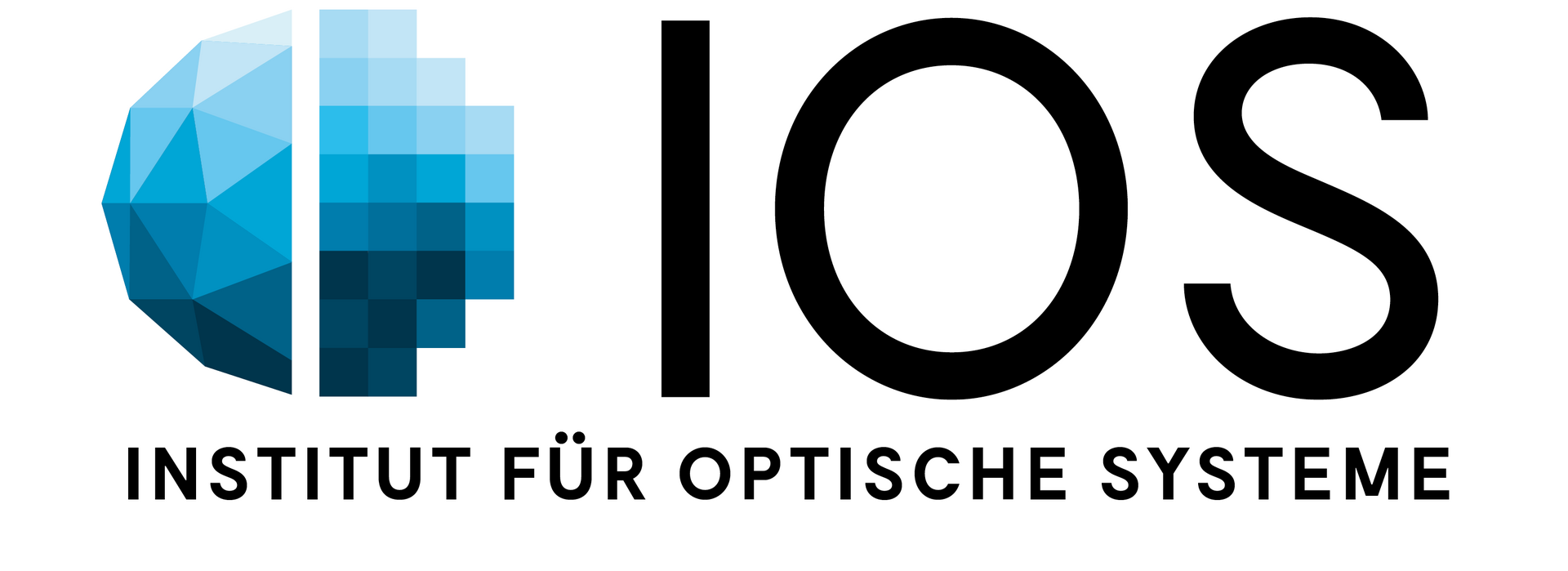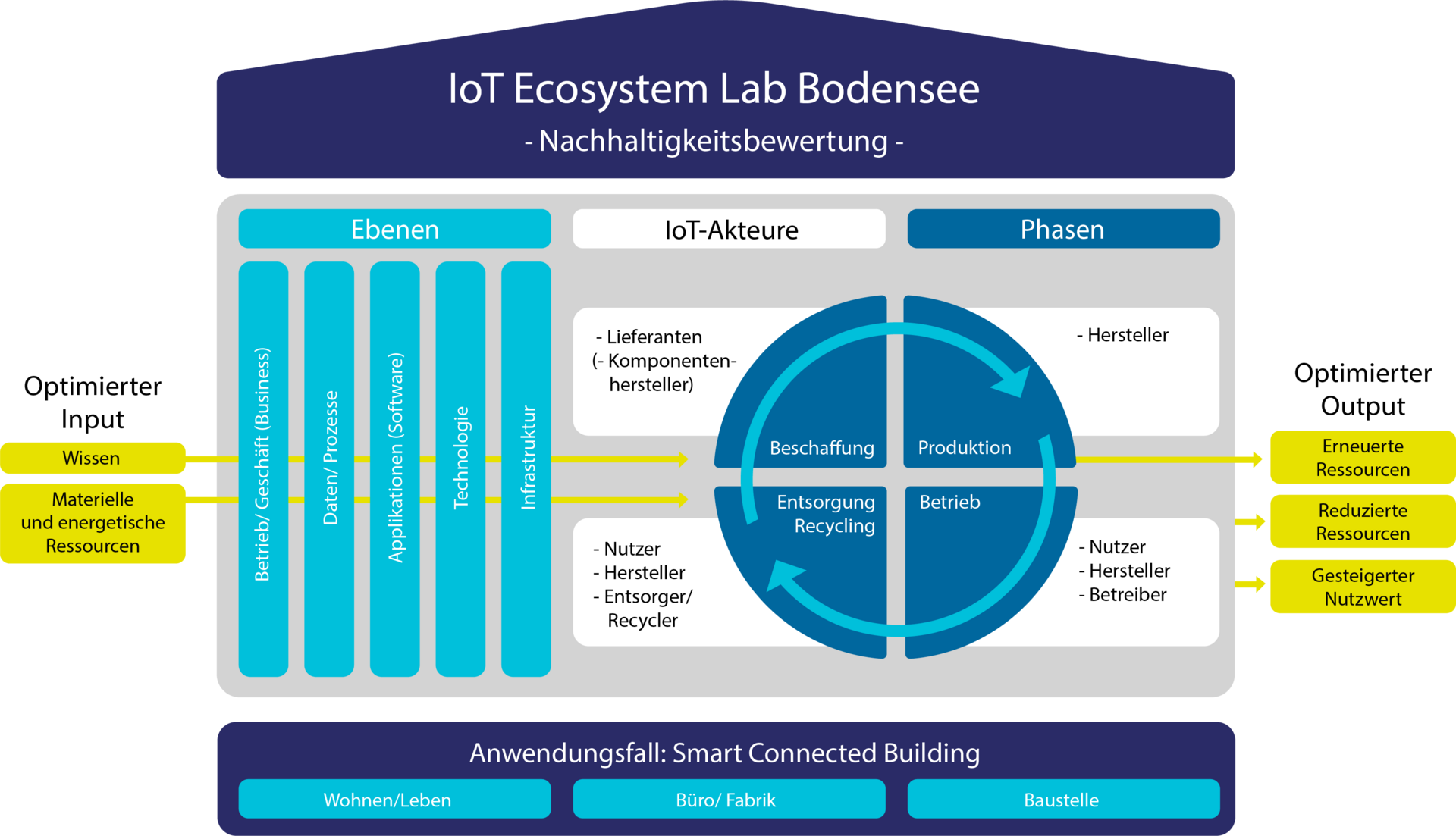Department of Computer Science
Computer science is the driver of digital transformation in society. We offer practical training for a secure and multifaceted career.
Research at the department of Computer Science
Research at the department of Computer Science is application- and practice-oriented. The range of research topics is broad: It includes topics in image processing, computer graphics, business process control, computation of people's paths, IT security as well as biomedical, mobile and automotive computing next to smart home & living.
The wide range of research projects shows how manifold and fascinating the field of computer science is. This is also experienced by our students, who are involved in these projects, and by the scientific staff, who continue their qualification after their studies.
A complete list of all research projects of the department of Computer Science is availble on the homepage of the Research Department.
To the list of reaseach projects (in German)
Following, we present the research institutes in which members of the department of Computer Science are involved, as well as additional research activities.
Research institutes
Since its foundation in 2008, the Institute of Optical Systems at HTWG Konstanz has been working on a representative cross-section of current optical technologies.
The focus is on the system concept, which requires thematic coverage of all areas and components important in the industrial environment.
The goal of the institute is to be a competent point of contact regarding all system components. Applications outside of optical systems are also considered. The following topics are covered:
- Lighting technology
- Optical measurement technology
- Image and geometry processing
- Computer graphics
- Computer vision
- Machine learning and AI
- Mathematical modeling and simulation
The research focus of the IOS at HTWG Konstanz has emerged as one of three focal points in the area of research and teaching across the faculties of Computer Science, Mechanical Engineering, Civil Engineering and Electrical and Information Engineering.
Institute of System Dynamics (ISD)
Numerous complex problems in the context of applied sciences are characterised by a combination of data acquisition, processing of the generated signals and controlling dynamic systems. A frequent requirement for systems in all kinds of areas is that the applied algorithms and methods ensure optimal solutions.
At the institute of system dynamics (ISD) Constance, research and development is done in the areas: Control engineering, signal processing and optimisation of dynamic systems. These topics reach from acoustics to mechatronics and robotics through to energy management.
Constance Institute of Process Control - Konstanzer Institut für Prozesssteuerung (kips)
The targeted control of business processes is one of the central management tasks of a company or institution. This control can take place at various organizational levels:
- Governance: Who has the decision-making rights for the process?
- Strategy: How should the process be designed for long-term usage?
- Operational control: Which key figures are in the focus? What are the deviations from the target?
- Execution: How is the implementation to be coordinated?
- Implementation: How can the process respectively process step be supported by IT?
Experience in corporate practice shows that the integration of various control systems on different levels provide significant added value.This is where kips comes in and links these levels in an integrated model and a corresponding toolset.
Within the framework of application-oriented research at kips, guidelines, instruments and tools are being developed that make this integration feasible in operational applications.
This research activity creates added value for the cooperating companies and institutions. They can learn about and use innovative process control methods at an early stage. In addition, students also participate in the work of the institute: they learn how theory relates to business practice in the context of exciting projects.
Additional research activities
Modern database system technology
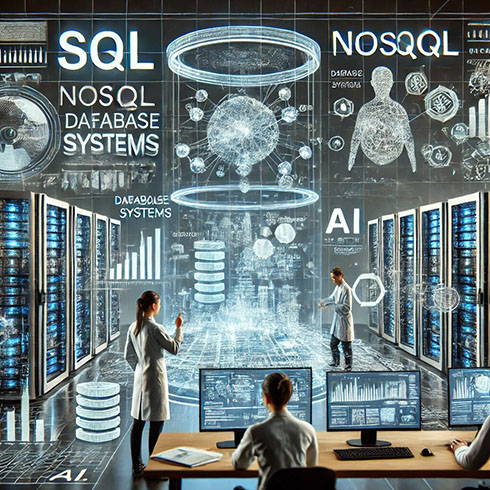
Image: AI-generated image (ChatGPT) on the topic of database systems research
Research in the field of database systems (DBS) is located in the database systems laboratory.
Focus areas:
- “Modern SQL": new features in the ISO standard SQL:2023 and in Oracle Database 23ai
- Graph DBS: application scenarios, query languages (e.g. ISO standard GQL), schema/constraint support, graph algorithms etc.
- Integration of database systems and artificial intelligence
- Test data modeling and generation for database-supported applications
Examples:
- Realization of a geographical route information system for runners based on a graph database
- Linking DBS technology and large language models to support legal case reviews using retrieval augmented generation
Our research in the field of database systems also serves to further develop teaching in the Bachelor's and Master's degree courses at the department of Computer Science. We work together with companies from the region with regard to theses and projects.
DeepCarbPlanner
DeepCarbPanner or decarbonization of energy-intensive industries through intelligent sector coupling with AI-based probabilistic forecasts and operational management is a joint research project of the Institute for Applied Research and the Institute for Optical Systems.
Research question:
How can CO2 emissions be reduced in energy-intensive industries?
Project objective:
Development of a toolbox for calculating CO2 emission reduction paths for:
- Optimization of production with existing machinery
- Optimal investment in climate-neutral technologies
using intelligent sector coupling.
Approach:
- Probabilistic predictions and stochastic optimizations
- Combination of physical and deep learning models
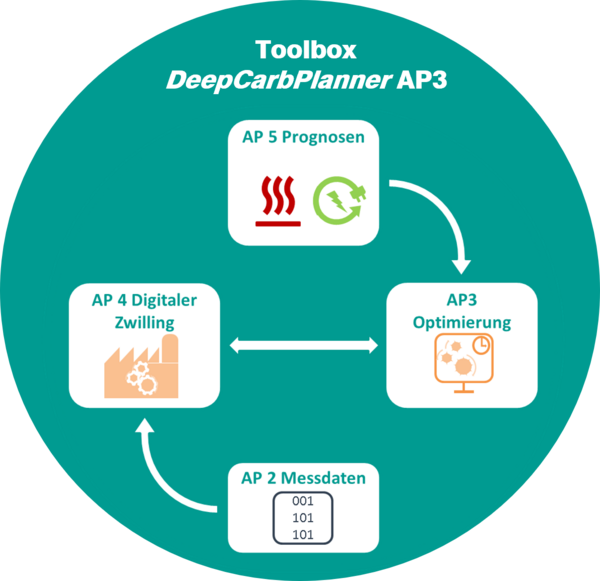
Image description of the “Toolbox DeepCarbPlanner AP3” workflow: The workflow runs from “AP 5 Forecasts” to “AP3 Optimization,” which interacts with “AP 4 Digital Twin” and is in turn fed by “AP2 Measurement Data.”
Project period: May 2023 - October 2026
Founding amount: €868,000
Project sponsor:Carl-Zeiss-Stiftung (Carl Zeiss Foundation)
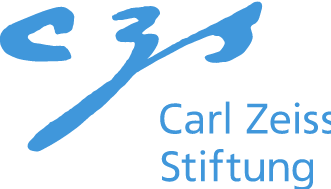
Graphic: Logo of the Carl Zeiss Foundation
Source: taken from project material; schematic representation of the IoT Sustainability Lab
Together with the department of Architecture and Design and the Lake Constance Innovation 4.0 Center, the department of Computer Science was successful in the call for innovation labs with the IoT Sustainability Lab. The lab will be funded by the cross-border EU funding program Interreg VI Alpenrhein-Bodensee-Hochrhein and the New Regional Policy of the Swiss Confederation over the next four years with around 2 million euros and will be supported by the scientific association Vierländerregion Bodensee.
Goal & participants
The IoT Sustainability Lab investigates the effects of the Internet of Things (IoT) on sustainability in order to develop technical solutions and innovative business models for IoT services. The building sector serves as an application example. In addition to the university partners Vorarlberg University of Applied Sciences, University of Liechtenstein, Zurich University of Applied Sciences, Eastern Switzerland University of Applied Sciences and Zeppelin University, the following industry partners are also involved in the lab: ISC Konstanz e.V., the lighting technology company Zumtobel Group, Anta Swiss, a manufacturer of waste collection systems, and RhySearch, the Rhine Valley Research and Innovation Center. Other companies such as Bosch Smart Home GmbH and Implenia AG are also involved as associated partners.
Contribution of the department
The lab is managed by the HTWG, with Prof. Dr. Sonja Meyer in charge of the content. The department of Computer Science is mainly developing a tool for the simplified sustainability assessment of IoT solutions. Professors Doris Bohnet and Sonja Meyer are supported in this task by research assistant Mohamed Ramadane, who has been working as a doctoral student at the department of Computer Science since 01.08.2023.
Further external information on the IoT innovation lab
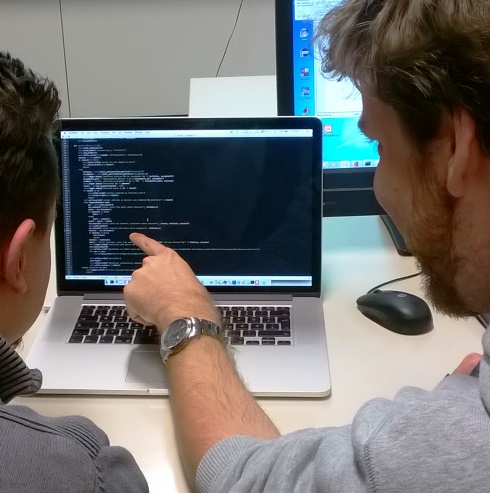
IT security
Research on IT security at the department of Computer Science is situated in the Lab for IT Security.
Focus
- Secure software development
- Protection against malware
- reliable cloud applications
- proactive IT forensics
Our research on improving training for the development of secure software also serves to further develop teaching for lectures regarding IT security within the bachelor and master programs. In research projects we cooperate with companies from the region. Our work is supported by an endowed professorship from the Auerbach Foundation (German homepage).
Calculating flows of people
PInG - Validated simulation of people flows and infection risks for designing safe events and spaces
In the PInG project (which stands for People, Infections, Design - the abbreviation is taken from the corresponding German words), headed by Prof. Dr. Rebekka Axthelm, the spread of infectious diseases is being modeled and numerically calculated as a function of room design and associated movement patterns of people. The project is funded by Interreg.
Focus
- Partial differential equations
- Finite element methods
- SIR modelling
- Validation
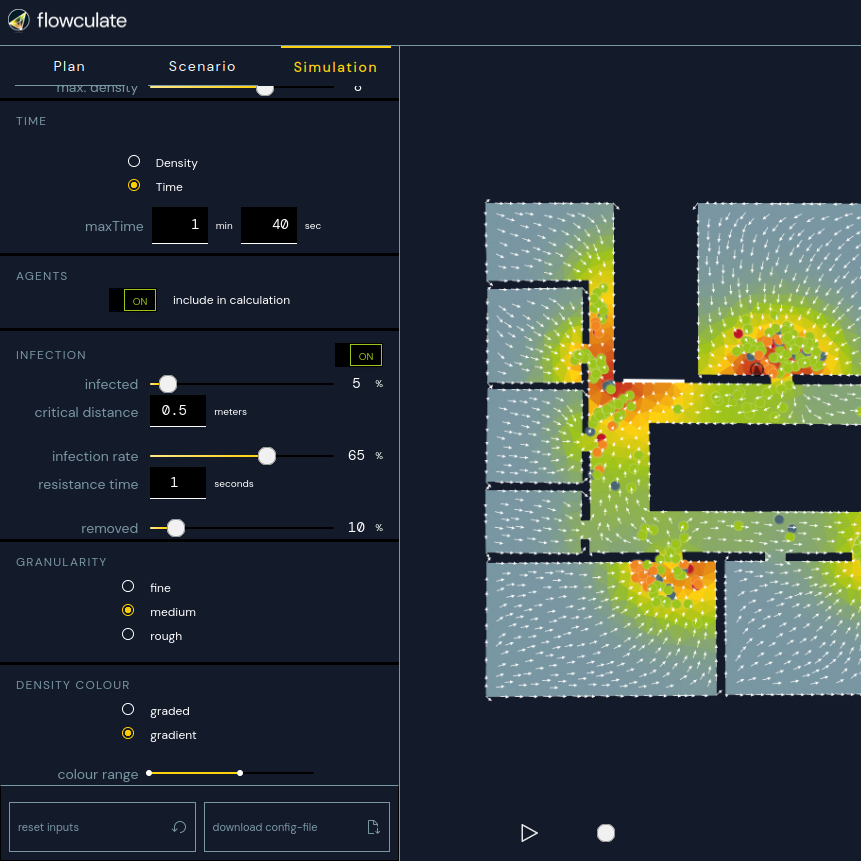
A screenshot of the flowculate software; image material: Prof. Dr. Rebekka Axthelm
Can measures be reduced during a pandemic situation if the probability of an infectious disease spreading can be reduced through optimal room design? In the predecessor project eFlow, a prototype of the planned software - called flowculate - was developed and is already freely available. Users can design their own space and select suitable parameters for an evacuation scenario. Based on the room design, the simulation shows how people move around the room during an evacuation. The simulation also shows in which areas the probability of very high densities occurs. Parameters of specific infectious diseases can be set and as a result the simulation provides a possible spread of the disease based on the movement of people.
Further aspects are now being investigated in the PInG project: In order to evaluate the quality of the simulation results, as many scenarios as possible must be validated. In addition, it is being investigated whether different room ventilation systems cause relevant changes to the results. Another point is the simulation of non-evacuation scenarios, as such scenarios are not covered by the underlying model in flowculate. Another question is whether calculations can also be carried out if measured data describing a typical probability distribution of people is available as a basis.
Project sponsors

The aim of the project is to develop freely accessible simulation software that can be used to simulate the flow of people in rooms and, at the same time, the associated probability of infection with various infectious diseases. We want to give SMEs the opportunity to use the results of the calculations for their own purposes. The project is a joint project with the Vorarlberg University of Applied Sciences and is supported by Interreg ABH with a grant of EUR 465,797. Further information can be found at https://www.interreg.org/projekte-1/interreg-vi/ping.
Ubiqitous Computing Lab (UC-Lab)
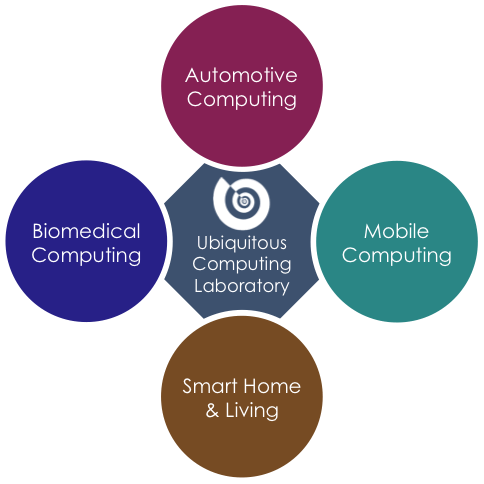
The Ubiquitous Computing Lab (UC-Lab), headed by Prof. Dr. Ralf Seepold, focuses its research and development on four areas:
- Biomedical computing
- Mobile computing
- Automotive computing
- Smart Home & Living
The area of biomedical computing investigates issues for a self-determined and healthy life that are relevant and important within a modern society. Algorithms and special hardware are developed to support solutions and prototypically prove their performance. The topics of sleep medicine and stress management are exemplary research topics, which are explored e.g. with doctorates.
Mobile computing continuously offers new innovations as part of embedded systems or smartphones. The detection, acquisition and pre-processing of environmental and also personal parameters are in the spotlight of research, which is often hardware and software oriented. Approches include external parameters, such as a location, and personal ones, such as the heartbeat in a body-area network.
Automotive computing investigates issues in the field of automotive software engineering and in the simulation of the behavior of a vehicle using the virtual car simulator, which is being further developed in the laboratory.
Smart Home & Living focuses on the field of assisted living. This topic, which has been accelerated in particular by demographic change, has become a technology transfer service. The lab's work is developed and tested in the Ecolar house - therefore the Ecolar house somehow became the Living Lab of the Ubiquitous Computing Lab. The lab develops new innovations but also prototypical applications that go far beyond the field of Smart Home. A significant contribution is made to a barrier-free access to new technologies.
IT infrastructure: laboratories, pc pools, software
The department of Computer Science offers various contemporarily equipped laboratories and pc pools including up to date software for different topics.
